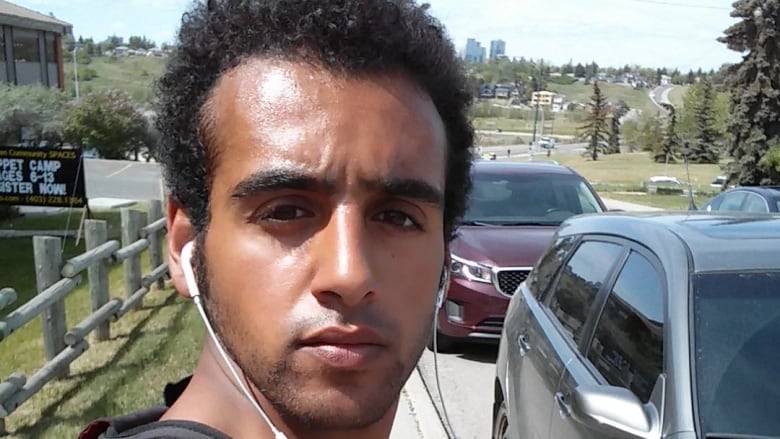Son killed and dismembered father but defence to argue he's not criminally responsible
Zaineddin Al Aalak on trial for 2nd-degree murder in 2017 death of his father Mohamed

Zaineddin Al Aalak admits he killed his father, dismembered him and dumped the body at an Okotoks construction site, but the jury will be tasked with deciding a different issue.
"Is Zaineddin criminally responsible for actions or is he mentally ill?" defence lawyer Alain Hepner posed to the jury, telling the panel he intends to argue his client isn't criminally responsible for his father's death.
Mohamed Jasmin Al Aalak, 53, was killed in July 2017.
Zaineddin's second-degree murder trial began Monday at the Stampede grounds where jury trials are now taking place due to COVID-19.
A not criminally responsible (NCR) finding would mean the jury believesZaineddindid not understand that his actions were morally wrong at the time of the killing. People found NCR are sent to secure psychiatric facilities for treatment instead of prisons.
Family separates in July
In an opening statement, prosecutorCarla MacPhail outlined the case forCourt of Queen's Bench Justice David Labrenz and the jury.
In 2017,Mohamed was living on his own after conflictwith two of his daughters.
That July,Mohamed's wife and daughters travelled to Iraq for a visit with family.
Two sons includingZaineddin, who was 21 years old at the time, remained in Calgary.
In mid-July,Mohamed's family became concerned after he stopped communicating with them.
'Grisly and gruesome' case
Although the family had separated, Mohamed and his wife still cared for each other and spoke almost daily, according to MacPhail.
On July 17, 2017, a construction worker made a gruesome discovery when he turned up for a shift and a human head rolled out of a bag he had moved.
Police were called and found more human remains wrapped in bed sheets, whichturned out to be Mohamed.
Investigators ultimately found Mohamed's blood inZaineddin's home and on a hatchet and hammer on his bedside table.
Sheets matching those at the construction site were also inZaineddin's home.
Hepner acknowledged the case is "grisly and gruesome" but said his client's mental state at the time of the killing will be the focus of the defence.
"Psychiatric evidence will feature significantly in this trial," said Hepner.












_(720p).jpg)


 OFFICIAL HD MUSIC VIDEO.jpg)
.jpg)



























































































